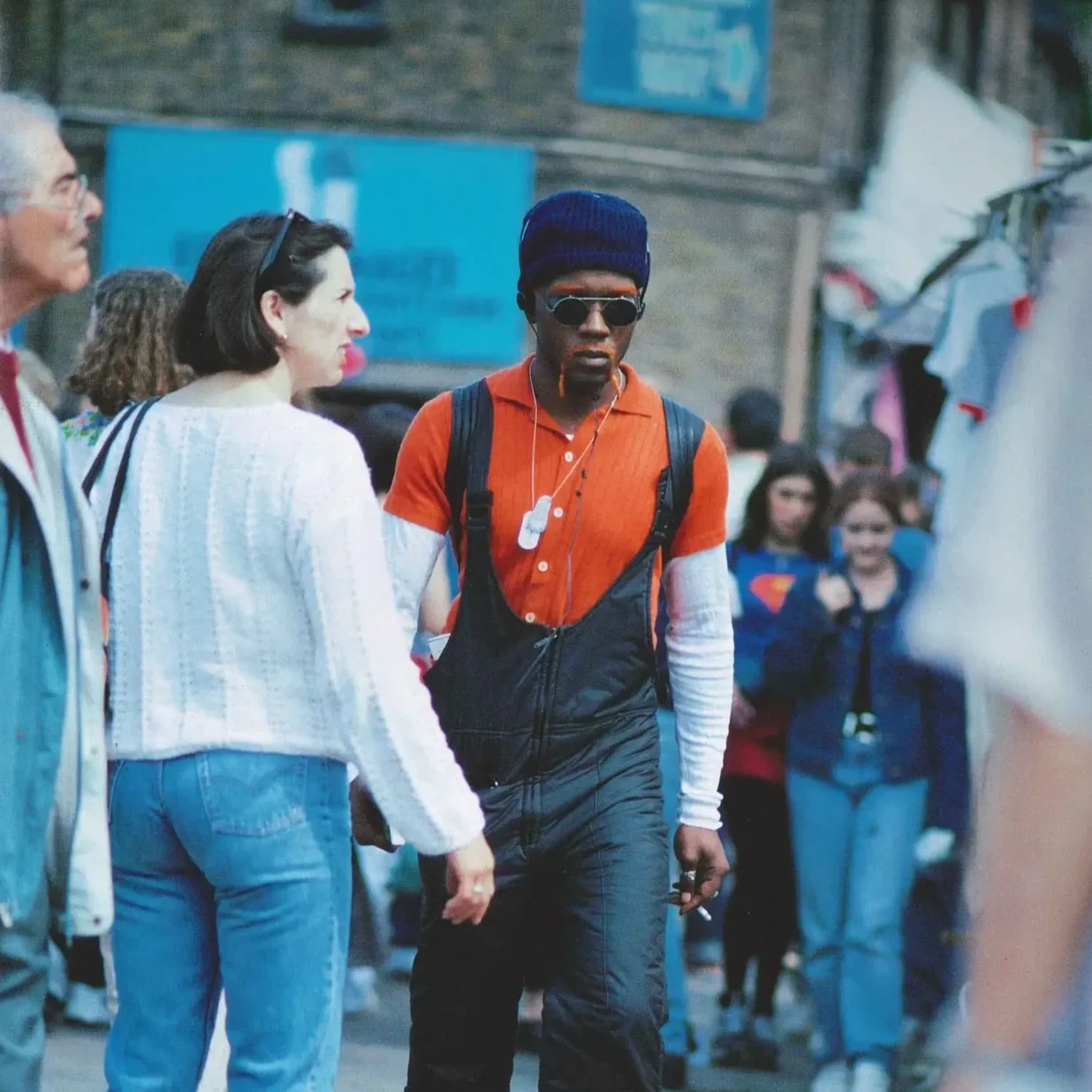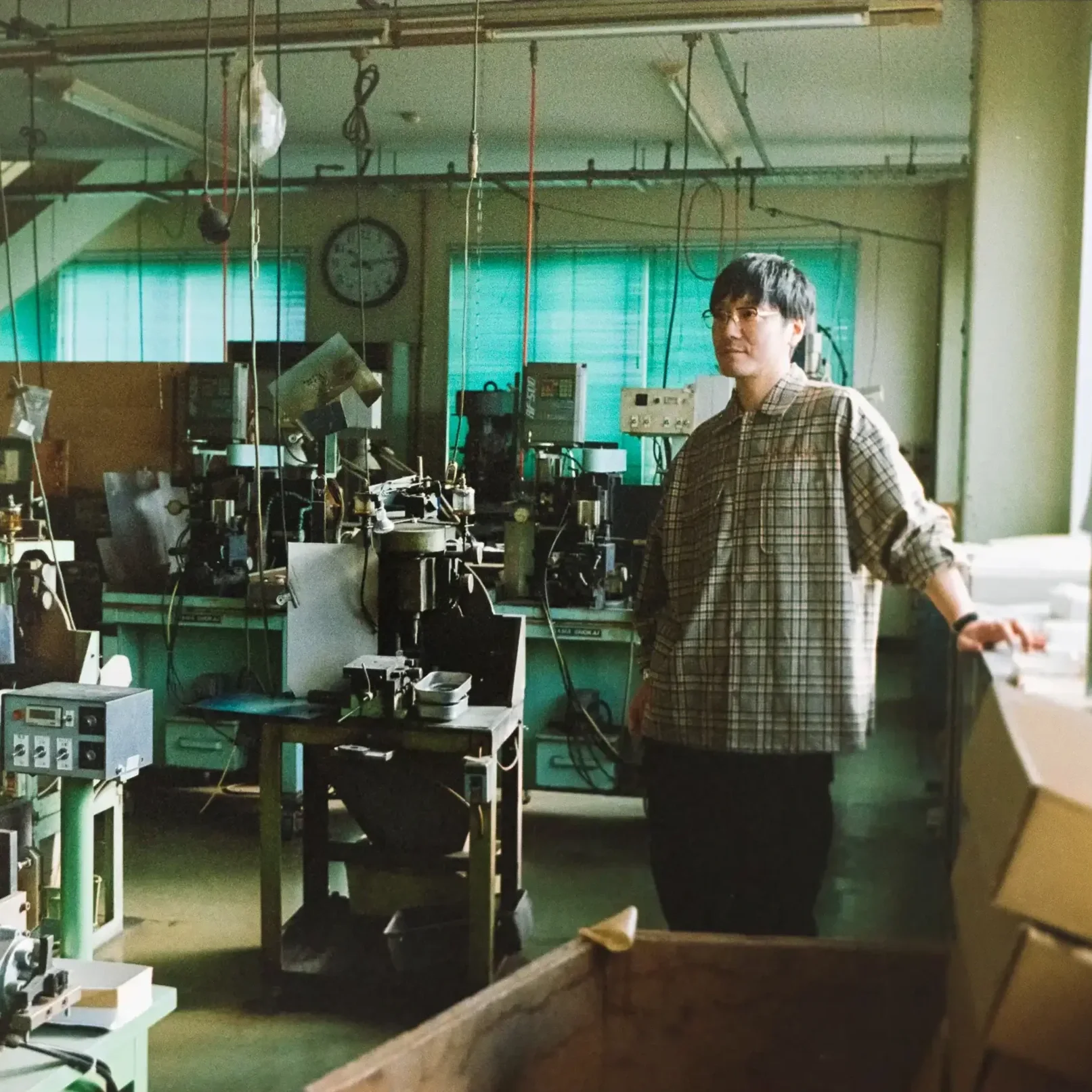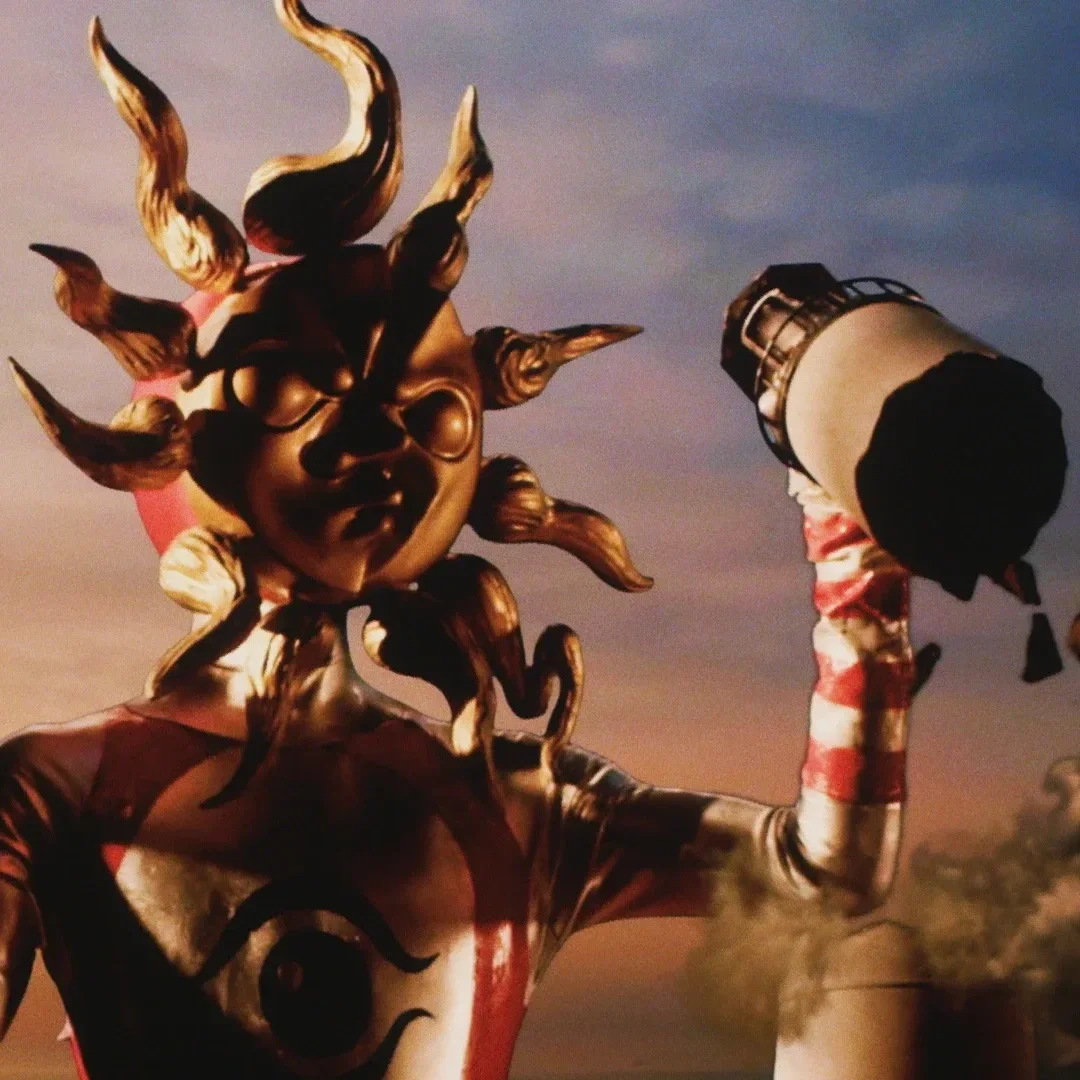Japanese Game Designers That Aren’t Hideo Kojima
The Legend of Zelda - Ocarina of Time│© Nintendo
Hideo Kojima is one of the most widely known titans in the realm of video gaming. The social media master gained a foothold in the industry thanks to his iconic Metal Gear Solid series, transforming the gaming landscape with his unique approach to storytelling. While Kojima-san’s legendary games and social media presence place him in the spotlight, Japan holds a massive pool of innovative gaming talents that have, and continue to, reshape the industry, surpassing Kojima’s monumental legacy.
This article dives into the contributions of Japan’s most influential game designers, each having an array of signature titles to their name.
14. Suda51 (Goichi Suda)
The Eccentric Game Designer
Most famous games - No More Heroes│Killer7│Lollipop Chainsaw
Goichi Suda, known as SUDA51, is a prominent Japanese video game writer and director, recognized as the CEO of Grasshopper Manufacture. Born in Nagano, he began his career in the early 1990s as a scenario writer for Human Entertainment, where he gained notoriety for his dark and somber themes in games like Super Fire Prowrestling III. In 1998, Suda founded Grasshopper Manufacture, releasing its first title, Shiruba Jiken, in 1999. He is celebrated for his unique storytelling and design in games such as killer7 and No More Heroes, blending influences from literature, film, and his passion for wrestling. Despite varied commercial success, his works have garnered a dedicated following and critical acclaim.
Lollipop Chainsaw│© Kadokawa Games & Warner Bros. Interactive Entertainment
13. Kazunori Yamauchi
The Racing Game Innovator
Most famous games - Gran Turismo series
Kazunori Yamauchi is a renowned Japanese game producer, director, and professional racing driver, best known as the CEO of Polyphony Digital and the creator of the Gran Turismo series. He began his career with the racing game Motor Toon Grand Prix, which led to the establishment of his reputation in realistic driving simulators. Yamauchi has also explored other genres, notably with the 1999 game Omega Boost. As a racing driver, he has participated in several prestigious events, achieving successes at the Nürburgring 24 Hours. His work and passion for cars earned him recognition in both the gaming and automotive industries.
Gran Turismo 7│© Sony Interactive Entertainment
12. Koji Igarashi
The Architect of Metroidvania
Most famous games - Castlevania: Symphony of the Night│Bloodstained: Ritual of the Night
Koji Igarashi graduated from Osaka University of Arts before joining Konami in 1990. He is best known for his work on the Castlevania series, particularly Castlevania: Symphony of the Night (1997). This game is credited with defining the “Metroidvania” genre, blending exploration and action within a sprawling, interconnected world. Players navigate a vast castle, acquiring new abilities that unlock previously unreachable areas, creating a sense of discovery and achievement. Igarashi’s design philosophy emphasizes atmospheric storytelling, intricate level design, and character development. He has played a crucial role in revitalizing the Castlevania series and has inspired countless developers with his emphasis on lore and exploration, ensuring that the Metroidvania genre continues to thrive.
picture Kogi Igarashi by Luigi Novi
11. Akihiko Yoshida
Final Fantasy Craftsman
Most famous games - Final Fantasy XIV│Bravely Default│Tactics Ogre
Akihiko Yoshida built most of his legacy while working at Square Enix, having a significant influence on the Final Fantasy series. He joined Square in 1995, contributing significantly to titles like Final Fantasy Tactics, Vagrant Story, and Final Fantasy XII, where he also served as a background design supervisor. Renowned for his distinctive medieval-themed artwork, Yoshida prefers traditional drawing techniques over digital methods, setting him apart from many contemporary designers. After leaving Square Enix in 2013, he became a freelance artist and later the director of CyDesignation, a subsidiary of Cygames. In addition to video games, he also designed characters for the 2018 film Maquia: When the Promised Flower Blooms.
Final Fantasy XIV│© Square Enix
10. Tetsuya Mizuguchi
The Harmonizer of Music and Gameplay
Most famous games - Rez│Child of Eden
Tetsuya Mizuguchi is the creator of acclaimed titles such as Rez and Child of Eden. Leading Enhance Games, he previously worked at Q Entertainment and Sega’s United Game Artists division, contributing to the Space Channel 5 series. His games often lack traditional narratives, prompting fans to develop their own interpretations, leading to what is referred to as the “Mizuguchi Cinematic Universe.” Common themes in his work include music, computer hacking, and synaesthesia. Notable titles include the rhythm-based Lumines series and the immersive Tetris Effect. Mizuguchi’s artistic vision is influenced by various cultural experiences, including rave culture and the works of Russian painter Wassily Kandinsky, reflecting his passion for blending sound and visuals in gaming.
Tetsuya Mizuguchi by Nic Fillingham
9. Yu Suzuki
The Pioneer of 3D Gaming
Most famous games - Shenmue│Virtua Fighter│OutRun
Yu Suzuki is best known for his work with Sega, particularly as the director of the AM2 development group. He created several iconic games, including Space Harrier, OutRun, Virtua Fighter, and the groundbreaking Shenmue series, which pioneered 3D open-world gameplay. Suzuki’s innovative contributions in the 1980s popularized pseudo-3D gaming with titles like Hang On and Afterburner, while his work in the 1990s advanced polygonal graphics with Virtua Racing and Daytona USA. Renowned as Sega’s equivalent to Nintendo’s Shigeru Miyamoto, he has been instrumental in shaping the arcade gaming landscape. In 2015, Suzuki successfully launched a Kickstarter for Shenmue III, reviving interest in his influential legacy.
Shenmeu│© Sega
8. Akira Toriyama
The Iconic Character Designer
Most famous games - Dragon Quest series│Chrono Trigger
Akira Toriyama is a legendary manga and game artist, renowned for his influential works, including Dr. Slump (1980) and Dragon Ball (1984). His art has significantly shaped the anime and gaming landscapes, contributing character designs for iconic video games like Chrono Trigger and Blue Dragon. Toriyama’s meticulous approach to art, often redrawing illustrations for perfection, reflects his dedication to his craft. Despite his shyness, he has left a lasting legacy through various adaptations of his work, including animated series and video games, while also nurturing a love for scale modeling and family life. His unique blend of humor, action, and creativity continues to inspire artists and gamers worldwide.
Dragon Quest│© Square Enix
7. Kenji Eno
The Experimental Visionary
Most famous games - D│Enemy Zero│Road to Hell
Kenji Eno was a Japanese composer, video game developer, and the CEO of WARP, SUPER WARP, and Orange to Yellow. He made significant contributions to the gaming industry before his death on February 20, 2013. Eno’s notable works include the NES game Sunman, which was originally intended as a Superman title, and the first-person FMV horror game D for the 3DO. He also developed Enemy Zero, D2, and the audio novel Real Sound: Kaze no Regret, showcasing his innovative approach to storytelling. Despite a setback with D2, Eno returned to gaming with You, Me, and the Cubes for the Wii.
Kenji Eno by Joi Ito
6. Masahiro Sakurai
The Fighting Game Innovator
Most famous games - Kirby series│Super Smash Bros. series
Masahiro Sakurai is a prominent Japanese video game designer known for creating and directing the Super Smash Bros. series, as well as directing the Kid Icarus series and previously leading the Kirby franchise. He has lent his voice to King Dedede in several games, including Super Smash Bros. Brawl and Kirby 64: The Crystal Shards. Sakurai maintained a blog called “Smabura-Ken” during the development of Super Smash Bros. Melee, later launching Smash Bros. Dojo, which provided updates about Super Smash Bros. Brawl in both English and Japanese. He also contributes weekly columns to Famitsu Weekly, sharing insights into game development and industry trends. Sakurai’s innovative approach has made him a central figure in the gaming community.
Super Smash Bros. Melee│© Nintendo
5. Yoko Taro
The Unconventional Storyteller
Most famous games - NieR series│Drakengard series
Yoko Taro is a game creator best known for his work on Drakengard and NIER. After graduating from Kobe Design University, he worked at Namco, Sugar & Rockets, and Cavia before becoming a director at ILCA. Yoko is recognized for the grim and apathetic tone in his games, although he often expresses confusion about their popularity. He shuns media attention, frequently concealing his face with masks or puppets during interviews, which he finds tedious. Despite the dark themes of his work, he is not a fan of horror. In addition to gaming, he authored the comic series Kimi Shi ni Tamou koto Nakare, adapted into theater later on.
Yoko Taro by Axem Titanium
4. Shinji Mikami
Pioneer of Survival Horror
Most famous games - Resident Evil series│Devil May Cry│The Evil Within
Shinji Mikami is a former game designer at Capcom, celebrated for creating the Resident Evil series and contributing to franchises like Viewtiful Joe and Devil May Cry. He joined Capcom in 1990, initially developing licensed games before achieving fame with Biohazard (Resident Evil), which pioneered the survival horror genre. Mikami later produced successful sequels and directed Dino Crisis, but his most significant project was Resident Evil 4, released in 2005, which received critical acclaim and commercial success. After leaving Capcom, he helped establish Clover Studio, known for God Hand, and later formed SEEDS Inc., eventually merging to create Platinum Games. Mikami’s influence on gaming remains substantial.
Shinji Mikami by Antonio Fucito
3. Fumito Ueda
The Artistic Visionary
Most famous games - Ico│Shadow of the Colossus│The Last Guardian
Fumito Ueda is celebrated for directing Ico (2001), Shadow of the Colossus (2005), and The Last Guardian (2016). After graduating from Osaka University of Arts in 1993, Ueda began his career at WARP, working on Enemy Zero. He later joined Sony’s Japan Studio, where he established Team Ico. His games are known for their minimalist design, sparse narratives, and unique visual style, often featuring overexposed lighting and fictional languages. Ueda left Sony in 2011, founding GenDesign to continue his work. His “design by subtraction” philosophy emphasizes gameplay mechanics over complex storylines, creating emotional, atmospheric experiences. Ueda’s contributions have earned him a reputation as a video game auteur.
Fumito Ueda│© Sony Computer Entertainment
2. Tetsuya Nomura
Master of Character Design
Most famous games - Final Fantasy series│Kingdom Hearts
Tetsuya Nomura is a Japanese video game artist, designer, and director at Square Enix. He began his career designing monsters for Final Fantasy V (1992) and rose to prominence as the lead character designer for Final Fantasy VII (1997). He has since contributed to numerous Final Fantasy titles and created iconic characters like Cactuar and Gilgamesh. Nomura is best known for directing the Kingdom Hearts series, which debuted in 2002, blending Square Enix and Disney worlds. He also directed the Final Fantasy VII Remake (2020) and its upcoming sequels. His distinct design style and innovative storytelling have earned him widespread acclaim, influencing both video game art and narrative design across several major franchises.
Final Fantasy V│© Square Enix
1. Shigeru Miyamoto
The Father of Modern Gaming
Most famous games - Super Mario│The Legend of Zelda│Donkey Kong
Shigeru Miyamoto is the creative force behind iconic franchises such as Mario, The Legend of Zelda, Donkey Kong, and Star Fox, collectively selling over 1 billion copies worldwide. Initially aspiring to be a manga artist, he joined Nintendo in 1977, where his first major success was the arcade game Donkey Kong. His games revolutionized the industry, especially Super Mario Bros. and The Legend of Zelda, which defined console gaming and popularized new gameplay mechanics. Appointed as a Creative Fellow in 2015, Miyamoto continues to influence game design, focusing on innovative gameplay over realistic graphics while fostering family-friendly experiences.
The Legend of Zelda - Ocarina of Time│© Nintendo
While Hideo Kojima reigns supreme as an icon within the gaming industry, he is far from the sole architect of its evolution. A multitude of Japanese game designers have carved out their own legacies. Consider Shigeru Miyamoto, whose pioneering gameplay designs transformed the very essence of interactive entertainment, or Yoko Taro, whose unconventional narratives challenge conventional storytelling paradigms.
These visionary creators have stretched the boundaries of what gaming can be, revealing that it transcends mere amusement. Video games, as they demonstrate, are intricate works of art—capable of weaving complex narratives, evoking deep emotions, and delivering rich experiences that linger long after the screen goes dark.






















How Hideo Kojima redefined gaming with innovative storytelling and cinematic gameplay.